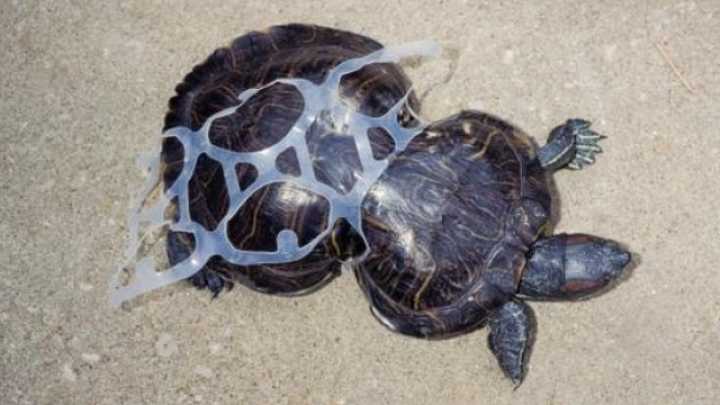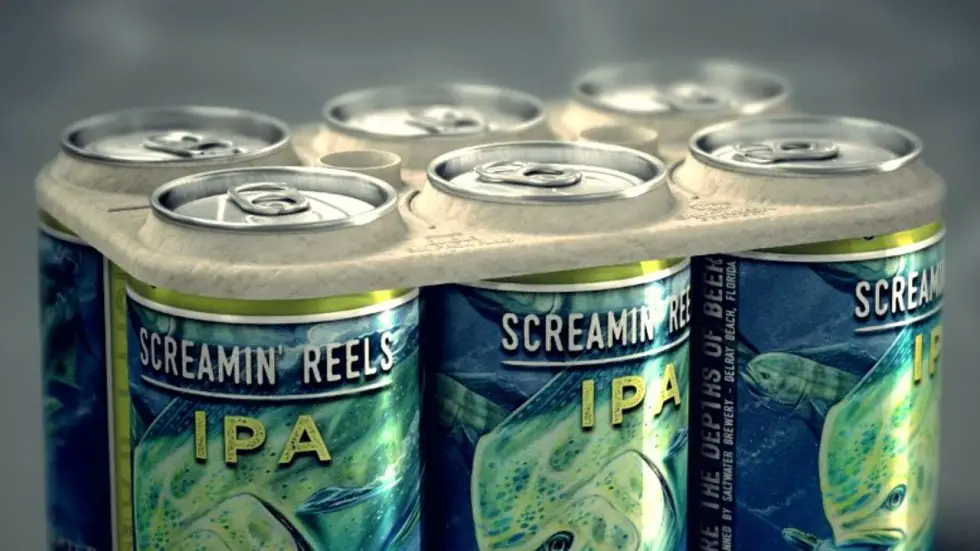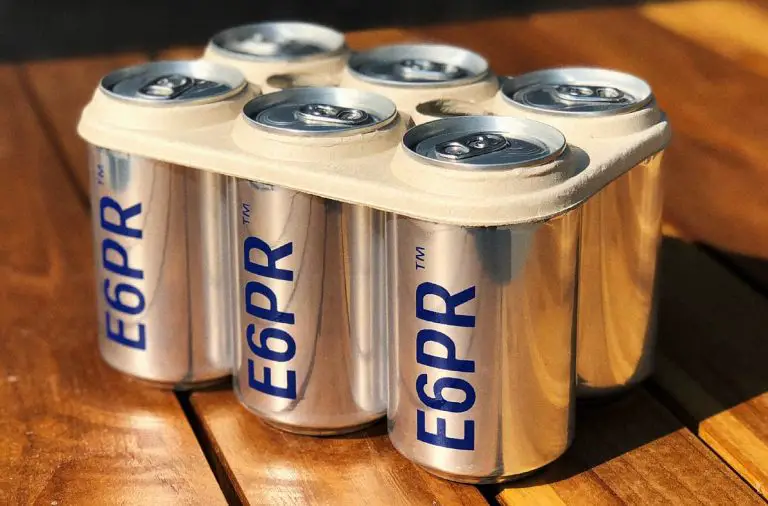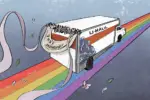Imagine a sea turtle swimming freely in the ocean, beautiful and graceful, checkered shell gliding through the water. Now, picture that same turtle misshapen and deformed, its shell mangled by a set of six-pack rings someone tossed into the ocean without a second thought.
This describes the striking image of Peanut the sea turtle that surfaced in 1993 and still serves as a rallying cry for environmentalists: Concrete action must be taken to protect marine life from human waste.
Six-pack rings, also known as yokes, are plastic links used to easily sell a set of beverages. Once detached, these lightweight rings often drift out into nature, where they are a danger to plants and animals alike. Since learning of their impact on wildlife, people have worked to manufacture alternatives that are more environmentally friendly.

The first milestone in this process came when scientists found a way to make plastic six-pack rings photodegradable, meaning extended exposure to sunlight causes them to disintegrate.
When made in this way, ultraviolet radiation can disrupt the chemical bonds within the polymer on a microscopic level, breaking apart the structure of the plastic rings. The process can take up to a month, but eventually, the rings become too damaged to pose any substantial threat to wildlife.
While this innovation helped mitigate the negative effects of plastic six-pack rings, a recent business partnership aims to take another big step forward. Saltwater Brewery, a craft beer company based in Florida, agreed to test new rings invented by startup Eco Six Pack Ring, or E6PR, that aren’t made of plastic at all. Instead, their wheat and barley mixture is not only biodegradable but also designed to be edible for sea turtles.

That’s right — a destructive pollutant with the potential to damage the health of marine animals has been transformed into their afternoon snack. E6PR crafted their eco-friendly six-pack rings from compostable materials with the ambitious dream of eventually ridding the packaging industry of plastic altogether. However, making their environmentally friendly alternative is more expensive than current methods of plastic production, which could deter companies from incorporating their product.
It is important to keep in mind that “cost” can mean more than finances — though the monetary cost rises, adopting E6PR’s product significantly lessens the environmental cost. Mass production could potentially make the extra expenses more manageable, but is this a trade-off companies are willing to make in order to protect the environment? Will Eco Six Pack Rings be the sustainable, beverage carrying material of the future?
Only time will tell.

















